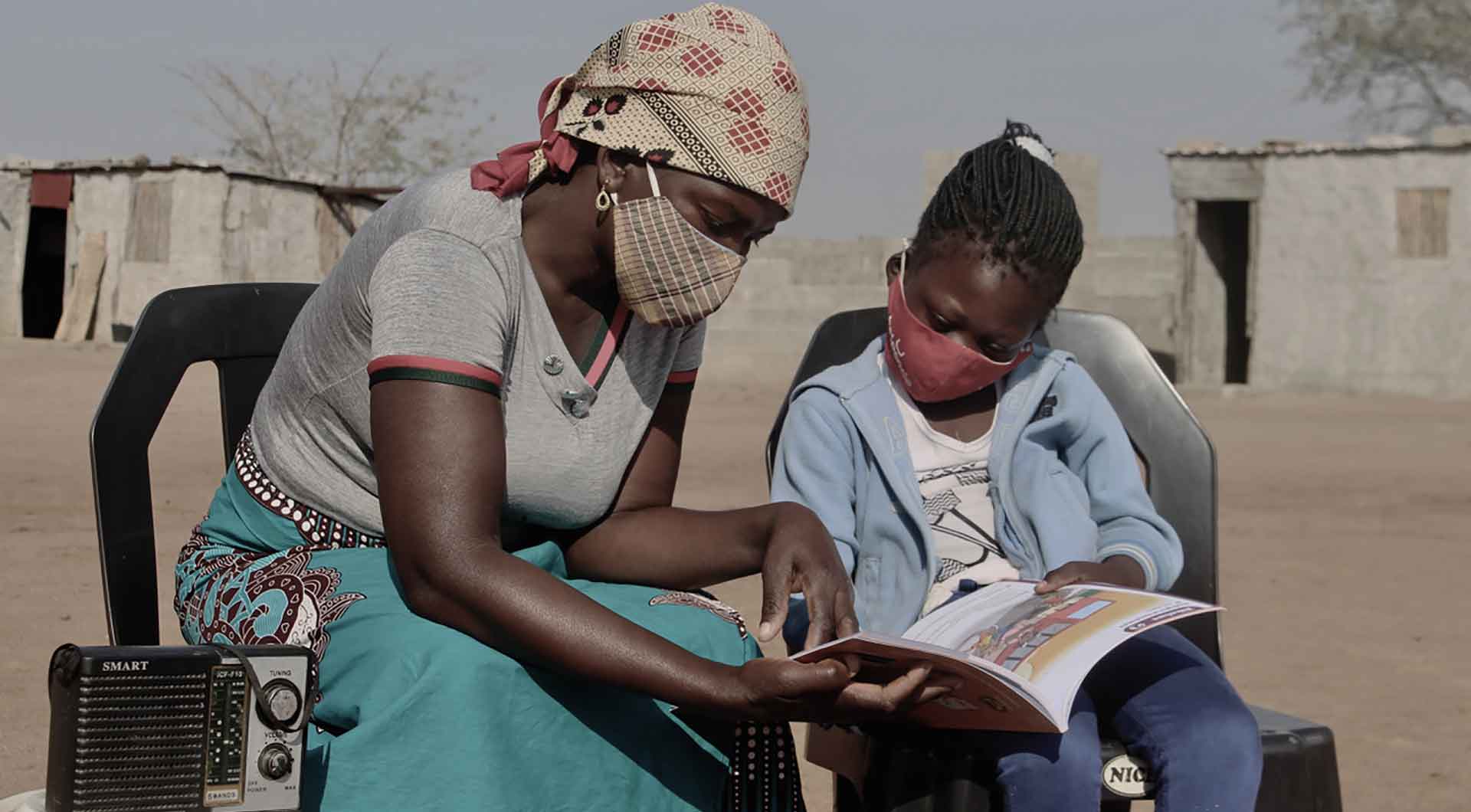
Read more about our latest opinions, case studies, and more from around the world

Humana People to People joins the rest of the world in marking World AIDS Day 2020 on 1 December. The theme for 2020 is “Global solidarity, shared responsibility”.
At a time when the world is battling the COVID-19 pandemic, people the world over come together to show solidarity with people living with HIV and to remember lives lost to AIDS. COVID-19 is showing once again how health is interlinked with other critical issues, such as reducing inequality, upholding human rights, gender equality and social protection, and pursuing responsible economic growth.
Humana People to People’s approach in fighting HIV and AIDS
Humana People to People is dedicated to helping to stop the spread of HIV and AIDS including tuberculosis (TB). The fight to gain control of HIV and AIDS as well as TB builds on the people in communities organised together and in close collaboration with the public health system.
The projects focus on information sharing, community mobilisation, HIV testing, tuberculosis screening, referrals to treatment, and support for treatment adherence, connecting staff and volunteers with communities in hard-to-reach areas and with most-at-risk populations.
Organising people at community level and building capacity to master their own development is at the core of Total Control of the Epidemic (TCE) activities. The TCE model at the beginning of the AIDS epidemic began with addressing home-based care, stigma and discrimination, providing HIV prevention messages and building community-based care structures with volunteers.

Celebrating 20 years of fighting HIV and AIDS
Since 2000, the HIV project, TCE, has reached over 20 million people across 12 countries in Africa and Asia, connecting them with the information, health services, and support to live healthy and positive lives. The guiding principle is that “Only the people can liberate themselves from AIDS the epidemic”.
The journey over the years has seen the TCE programme implementing various innovative approaches such as pioneering HIV testing at home, building synergies with health centres to support HIV treatment for the infected, and early initiation of treatment for patients who test HIV positive.
TCE has proven to be a powerful model, helping countries move towards the global UNAIDS 95-95-95 targets leading to epidemic control. Currently, TCE has aligned its approach to target most-at-risk groups, people missing for HIV testing, finding people living with HIV and referring them for treatment. People are assisted to adhere to treatment and ‘lost-to-follow’ clients are tracked and identified so they remain under treatment, which is essential in achieving viral load suppression of HIV.
Having reached 20 million people with this strategy, similar approaches are now being used in programmes to combat TB and malaria. Furthermore, they are being adapted for programmes that include non-communicable diseases such as hypertension and diabetes.

Integrating COVID-19 prevention in our HIV and AIDS programming
Humana People to People has seen how the COVID-19 crisis has worsened the challenges faced by people living with HIV, women, girls and other key populations when it comes to accessing life-saving health care. The crisis has widened the social and economic inequalities that increase the vulnerability of marginalized groups to HIV. On another note, the COVID-19 crisis has been a wake-up call, an opportunity to do things differently—better, and together.
Humana People to People has observed countless examples of how community activism and solidarity have been instrumental in providing people affected by HIV with information, services, social protection and hope. However, such solidarity cannot be the sole responsibility of communities. Each and every one of us, national governments, traditional leaders, civil society and donors need to contribute to making the world a healthier place. The shared concern demands all interested parties to act; the broader call invites global responsibility.
In the wake of the COVID-19 pandemic, TCE and other Humana People to People development projects have integrated COVID-19 awareness raising, prevention messages and relief aid to vulnerable community members. People living with HIV were assisted to access anti-retroviral medication for longer periods of time within some of the countries TCE operates in. The government of Namibia acted fast and made it possible for local health centres to distribute six months supply of HIV drugs to people under HIV treatment. The shared responsibility on the part of Namibia’s government was crucial in making it possible that, where TCE is having HIV treatment support groups, there was no interruption on treatment adherence.
In Angola, Mozambique, South Africa, Zambia, India and Botswana, members of Humana People to People engaged local volunteers and partners who provided food handouts, personal protective equipment, hand sanitisers, facemasks, among other in kind materials, which were donated to members of communities.
A Call to Action
As we enter the last decade of action to end AIDS as a public health threat by 2030, efforts to fight HIV and AIDS need the shared responsibility to reach the promised goal. Global solidarity and shared responsibility requires a new approach on viewing global HIV responses. It requires the world to come together to ensure health is fully financed, health systems are strengthened, access to HIV treatment services is secured, human rights are respected and gender equality is placed at the centre.
2022 © Humana People To People. All rights reserved.